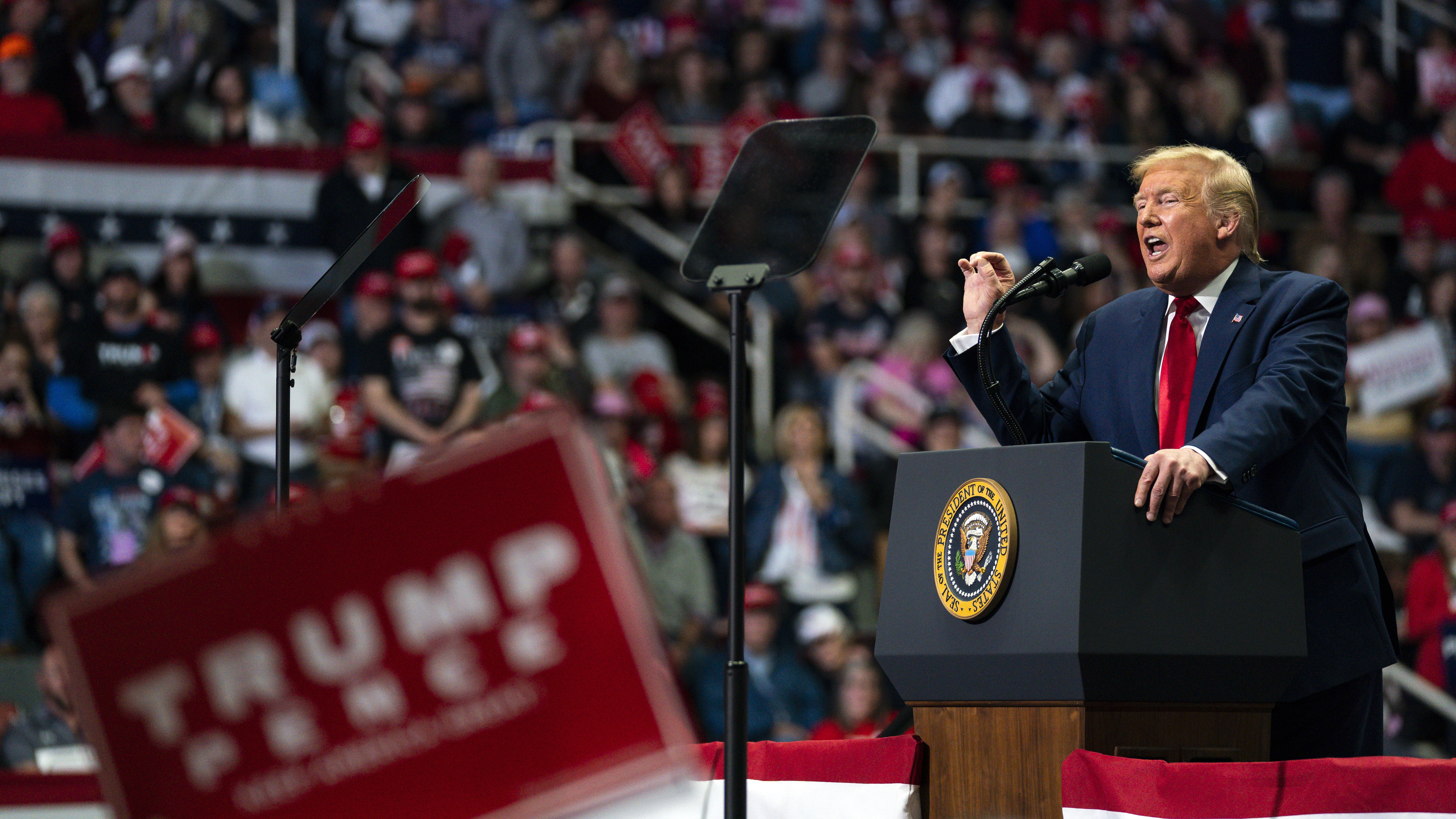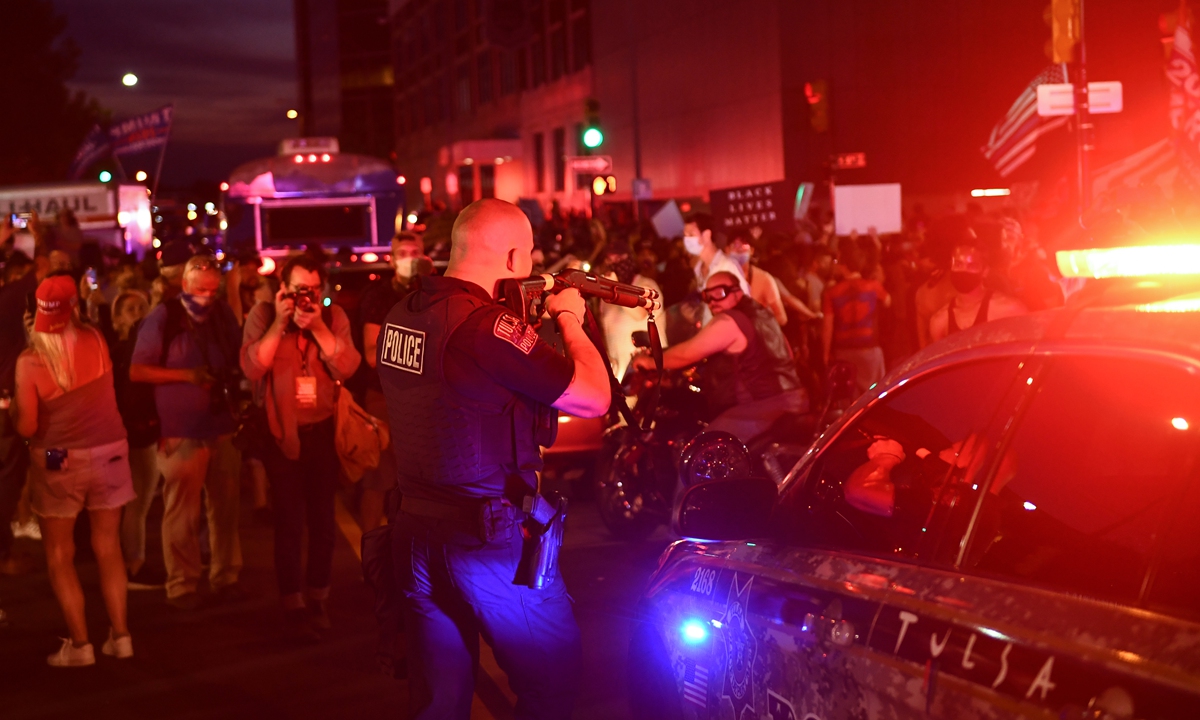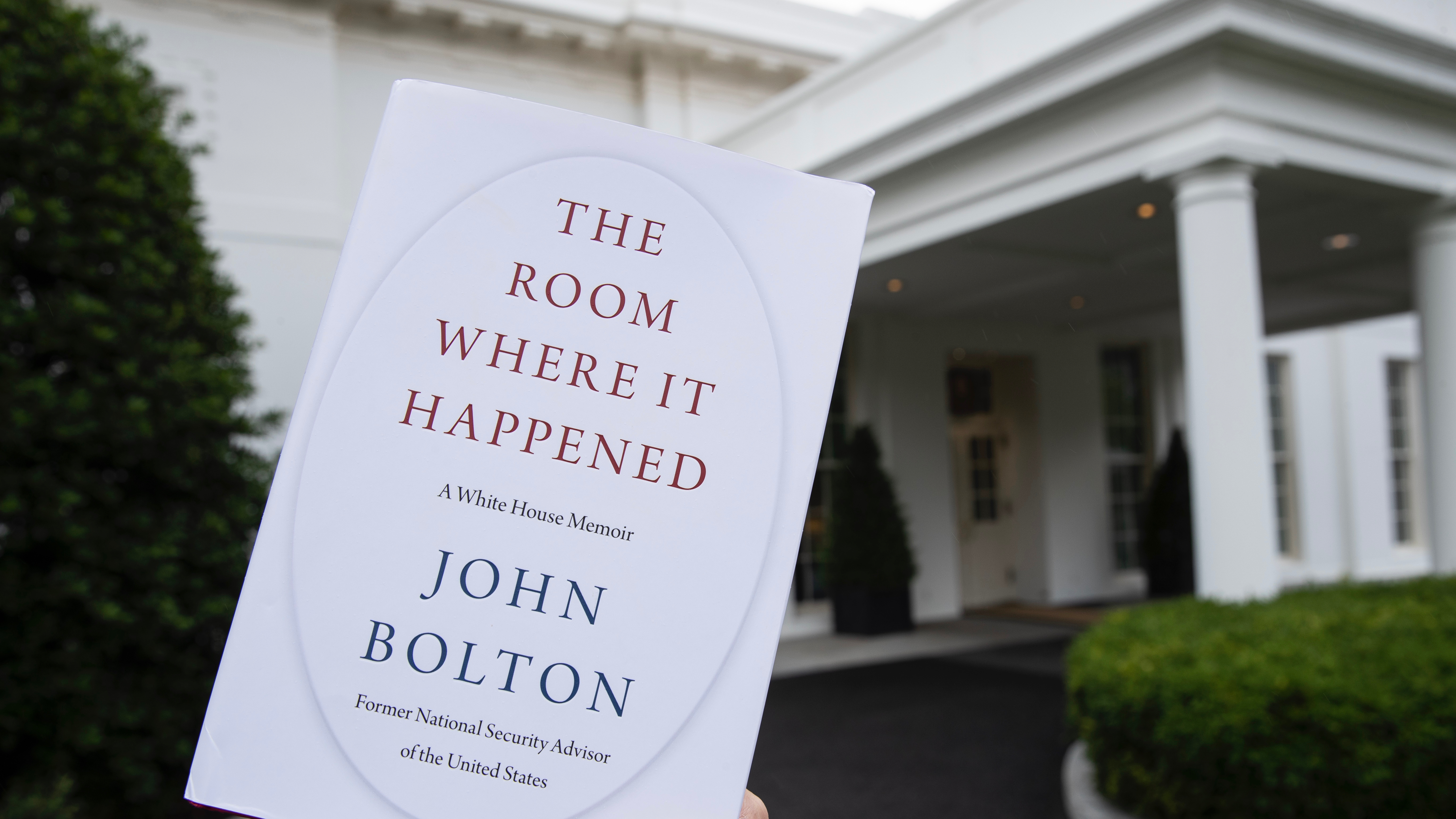
Editor's note: Josef Gregory Mahoney is Professor of Politics at East China Normal University and executive director of the International Center for Advanced Political Studies. He frequently consults with policymakers in both Washington and Beijing, and is a regular contributor to South China Morning Post and Beijing Review, among others. The article reflects the author's opinions, and not necessarily the views of CGTN.
Soon, Americans will be celebrating the Fourth of July – Independence Day. And despite spiking COVID-19 cases, economic duress and social instability, despite not learning his lesson in Tulsa, U.S. President Donald Trump has promised, contrary to sober warnings, to hold a national celebration in Washington that stokes national pride, signifies "reopening" America, and restarts his "Make America Great Again" narrative.
The celebration plans are making many nervous. Washington D.C.'s local government and city officials have resisted various plans proposed by the Trump administration, given concerns for COVID-19 as well as security, fearing that they would likely become a flashpoint for protests and counterprotests related to many of the problems roiling the U.S. today. Trump often serves intentionally as both lightning and lightning rod.
Who's responsible?
One of the more damning descriptions of Trump has come from one-time Reagan administration intellectual and longtime influential voice among American conservatives, Francis Fukuyama, who described Trump's presidency in a recent article in Foreign Affairs as a profound misfortune, signaling both a collapse of effective governance at home and the same internationally, at a time when both are incomprehensible and unforgivable.
While it's understandable that many are pointing a finger at Trump and asserting a desire to hold him accountable in November, there are of course three concerns at present. The first, of course, is that he can still do a lot of damage between now and then. Second, while it seems horrifying and increasingly unlikely to many, he might still win reelection. And third, while some, including Fukuyama, regard Trump as the worst American leader ever, it is a mistake to think he's solely responsible for current conditions or that voting against him provides absolution for decades of misguided governance and leadership.

Police officers shoot pepper balls at the crowd where Trump supporters and anti-Trump protesters roamed together in Tulsa, Oklahoma. /AFP
Police officers shoot pepper balls at the crowd where Trump supporters and anti-Trump protesters roamed together in Tulsa, Oklahoma. /AFP
Remarkably rotten
Of course, Americans have long known their leaders have rarely lived up to publicly espoused personas, and often have fared even worse when judged by future generations. Sometimes this is papered over by cynicism. And often, it's complemented by a denial of historical responsibility – either ignorance of what happened in the past or, even when it's known, the misguided and often self-serving belief that what happened before has little to no bearing on what one should or can do now.
Today, this has reached a moment of reckoning, symbolically at least. Protesters around the country have been pulling down statues of historical figures associated with racist and in some cases genocidal events. Symbols of injustice must be confronted, but they are omnipresent and, in some cases, difficult to make a black-and-white judgement. For example, of the men pictured on U.S. currency today, including George Washington (one dollar bill), Thomas Jefferson (two dollar bill), Abraham Lincoln (five dollar bill), Alexander Hamilton (10 dollar bill), Andrew Jackson (20 dollar bill), Ulysses S. Grant (50 dollar bill) and Benjamin Franklin (100 dollar bill), only Lincoln neither owned slaved nor personally engaged in the business of slavery.
Whatever Trump's many personal and political failings, and despite his aggression internationally, he is not the first or worst racist to occupy the White House, nor has he to date been the most destructive in terms of warmongering. Other presidents have presided over graver national and international crises for which they were also extensively responsible for creating.
While Trump's leadership appears to have made things worse, although he's exploited the systemic failures that preceded him, while his behavior is remarkably rotten when it comes to moral if not legal business practices as well as sensitive issues like gender and race, while he allegedly violates political norms, if not Constitutional limits, and has been labeled a "threat" to American democracy and unfit for office by leading American figures, including right-wingers those who worked closely with him like Jim Mattis and John Bolton, the growing desire to hold him responsible for all of America's problems past and present makes little sense.

A copy of "The Room Where It Happened," by John Bolton, is photographed at the White House, Washington, June 18, 2020. The book is said to be pulling the curtain back on Trump administration's decision making. /AP
A copy of "The Room Where It Happened," by John Bolton, is photographed at the White House, Washington, June 18, 2020. The book is said to be pulling the curtain back on Trump administration's decision making. /AP
Consequently, this uncomfortable dark moment of U.S. history risks being reduced to Trump, or lit up with a national celebration of fireworks in Washington, or devolving into continued unrest. The fact that Trump would risk if not encourage such is both unfortunate and immediate, but why does he qualify as the worst, to return to Fukuyama and like-minded critics?
The reason, it seems, is that Trump is presiding over the historical moment when American power has collapsed. Although some argue this trend has been underway for a long time, perhaps since the 1960s or 1970s, Trump's presidency appears to have hastened history while also being symbolic of the collapse it hurries.
In this sense, Trump is not merely the man of the moment, but the very personification of those failures' past and present. The extent to which people like Fukuyama or those making rap records or struggling in the streets recognize this, is unclear. But whatever Trump's responsibilities, and whatever he symbolizes, the same should be asked of the nation and everyone who claims it. Until that happens sufficiently, Americans will face a future of celebrating unsettling July 4ths like the one in two weeks time.
(If you want to contribute and have specific expertise, please contact us at opinions@cgtn.com.)